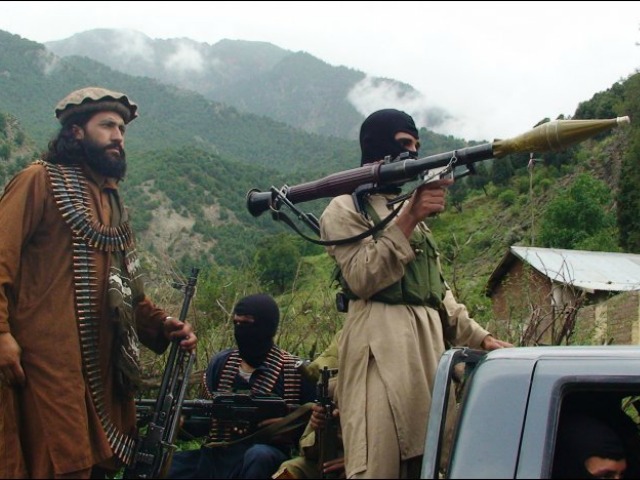The U.S. Department of Defense (DoD), in a report to Congress, accused Pakistan of using militants as “proxy forces” in Afghanistan and India and acting as a sanctuary for terrorists.
Pakistan denies the accusations, calling them “unsubstantiated allegations” and “unwarranted comments,” India’s Zee News reported.
“Afghan- and Indian-focused militants continue to operate from Pakistan territory to the detriment of Afghan and regional stability,” reported the Pentagon in its latest assessment of the U.S. Afghanistan strategy submitted to Congress every six months.
“Pakistan uses these proxy forces to hedge against the loss of influence in Afghanistan and to counter India’s superior military,” continued DoD. “These relationships run counter to Pakistan’s public commitment to support Afghan-led reconciliation. Such groups continue to act as the primary irritant in Afghan-Pakistan bilateral relations.”
DoD also accused Pakistan of providing sanctuary to jihadists including members of the Taliban fighting American forces in Afghanistan.
“Taliban attacks in Afghanistan launched from sanctuaries in Pakistan remain a serious problem,” reported the Pentagon. “These sanctuaries exist primarily in the Federally Administered Tribal Areas (FATA) and Baluchistan.”
“The resiliency of the Afghan insurgency continues to depend on sanctuary in Pakistan, making an effective relationship between Afghanistan and Pakistan critical to long-term stability in the region,” later added the assessment.
Pakistan was also charged with serving as a sanctuary for the Haqqani Network, a group that the United States has added to its list of terrorist organizations and is described in the Pentagon report as a formidable threat against American forces in Afghanistan.
“The Haqqani Network remained the most potent strain of the insurgency and the greatest risk to U.S. and coalition forces due to its focus on high-profile attacks,” reported DoD. “The Haqqani Network and affiliated groups share the goals of expelling U.S. and coalition forces, destabilizing the Afghan government, and reestablishing an Islamic Emirate of Afghanistan.”
“They will likely remain the most significant threat to coalition forces in the post-2014 non-combat mission, especially if they are not denied sanctuary in Pakistan,” added the Pentagon.
In September 2012, when the group was added to the U.S. list of terrorist organizations, The Long War Journal noted that the network has been “linked to the Taliban, al-Qaeda, and Pakistan’s military and intelligence services.”
Zee News reported that U.S. Ambassador Richard Olson was called into Pakistan’s Foreign Ministry office where Sartaj Aziz, the Pakistani Prime Minister’s Adviser on National Security andForeign Affairs, conveyed objections to the accusations in the Pentagon report.
“The Government of Pakistan takes serious exception to commentscontained” in the DoD report to Congress, Pakistan’s Foreign Office said in a statement explaining the message that was conveyed to the American ambassador, according to Zee News.
“While noting Pakistan’s cooperation with the US in areas of mutualinterests, the recently released report also carries unsubstantiatedallegations of the existence of terrorist ‘sanctuaries’ or that proxyforces are operating from here against Afghanistan and India,” added the statement.
The Pentagon report also pointed out that a “significant portion” of materials used to make Improvised Explosive Devices (IEDs), the number one killer of U.S. forces throughout the Afghanistan war, “continue to emanate from or transit through Pakistan.”
Nevertheless, the U.S./NATO-led International Security Assistance Force (ISAF) in Afghanistan will continue to work with Pakistan’s military, according to the DoD report.
“Despite these setbacks, ISAF will continue to support the development of a constructive military-to-military relationship and provide venues for the two sides to come together with the intent of improving the poor state of their relations,” mentioned the Pentagon. “However, convincing both sides to cooperate on a range of security issues will take a concerted and sustained effort by the international community.”
Most American military fatalities in the Afghanistan war have occurred in and around Afghan provinces that border Pakistan.

COMMENTS
Please let us know if you're having issues with commenting.